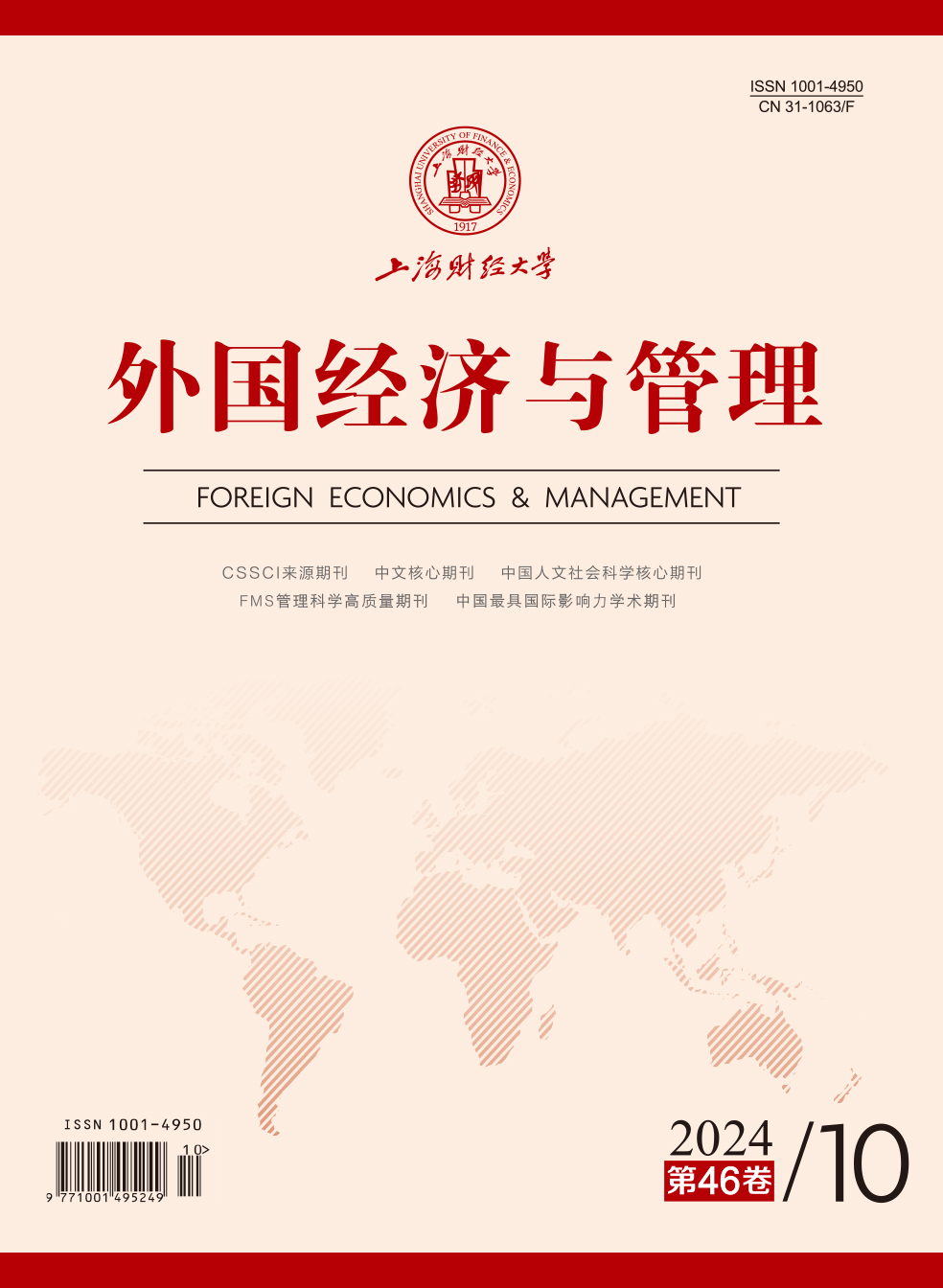员工知识隐藏行为抑制了知识在组织中的传播和创造,削弱了组织的发展动力。本研究基于200份多时点企业员工的调查问卷,对人工智能技术的应用是否会引发员工知识隐藏行为以及作用机制进行探讨。结果表明:人工智能应用对员工的相对剥夺感和知识隐藏行为具有显著的正向作用,即人工智能应用会导致员工感觉到被剥夺,引发其知识隐藏行为。进一步分析发现,相对剥夺感在人工智能应用与员工知识隐藏行为间起到部分中介作用;在人工智能影响员工知识隐藏行为的过程中,人机关系发挥正向调节作用;伦理型领导负向调节相对剥夺感在人工智能应用与部分员工知识隐藏行为间关系中的中介效应,即存在被调节的中介效应。上述发现丰富了人工智能背景下企业进行知识管理的相关研究,对员工知识隐藏行为决策与管理具有一定的指导意义。
人工智能会引发员工的知识隐藏行为吗?——基于相对剥夺感的理论视角
摘要
参考文献
1 陈春花, 梅亮. 人机共生: 组织新生态[J]. 哈佛商业评论(中文版), 2019, (9): 112-120.
2 程海东, 胡孝聪. 智能时代人机共生价值关系探析[J]. 道德与文明, 2023, (3): 35-45.
3 高天茹, 贺爱忠. 职场排斥对知识隐藏的影响机理研究: 一个被调节的链式中介模型[J]. 南开管理评论, 2019, 22(3): 15-27. DOI:10.3969/j.issn.1008-3448.2019.03.003
4 顾丽敏, 李嘉. 人工智能对企业知识管理的影响研究[J]. 学海, 2020, (6): 39-44.
11 王雁飞, 林珊燕, 郑立勋, 等. 社会信息加工视角下伦理型领导对员工创新行为的双刃剑影响效应研究[J]. 管理学报, 2022, 19(7): 1006-1015.
12 谢小云, 左玉涵, 胡琼晶. 数字化时代的人力资源管理: 基于人与技术交互的视角[J]. 管理世界, 2021, 37(1): 200-216,13.
14 野中郁次郎, 竹内弘高著, 吴庆海译. 创造知识的企业[M]. 北京: 人民邮电出版社, 2022: 63-65.
15 余传鹏, 黎展锋, 叶宝升. 自我决定理论视角下真实型领导对员工知识隐藏行为的影响[J]. 海南大学学报(人文社会科学版), 2023, 41(3): 148-160.
16 于雪, 翟文静, 侯茂鑫. 人工智能时代人机共生的模式及其演化特征探究[J]. 科学与社会, 2022, 12(4): 106-119.
17 张笑峰, 席酉民. 伦理型领导对员工知识隐藏的影响机制研究[J]. 软科学, 2016, 30(10): 96-99.
18 郑秋伟. 人机共生: 当代人机关系的发展趋势[J]. 前沿, 2021, (2): 20-25,40.
19 朱晓妹, 王森, 何勤. 人工智能嵌入视域下岗位技能要求对员工工作旺盛感的影响研究[J]. 外国经济与管理, 2021, 43(11): 15-25.
20 Arias-Pérez J, Vélez-Jaramillo J. Understanding knowledge hiding under technological turbulence caused by artificial intelligence and robotics[J]. Journal of Knowledge Management, 2022, 26(6): 1476-1491. DOI:10.1108/JKM-01-2021-0058
21 Bari M W, Ghaffar M, Ahmad B. Knowledge-hiding behaviors and employees’ silence: Mediating role of psychological contract breach[J]. Journal of Knowledge Management, 2020, 24(9): 2171-2194. DOI:10.1108/JKM-02-2020-0149
22 Brown M E, Treviño L K, Harrison D A. Ethical leadership: A social learning perspective for construct development and testing[J]. Organizational Behavior and Human Decision Processes, 2005, 97(2): 117-134. DOI:10.1016/j.obhdp.2005.03.002
23 Chen X, Liu Y, Zhong H. Generalized trust among rural-to-urban migrants in China: Role of relative deprivation and neighborhood context[J]. International Journal of Intercultural Relations, 2023, 94: 101784. DOI:10.1016/j.ijintrel.2023.101784
24 Connelly C E, Zweig D, Webster J, et al. Knowledge hiding in organizations[J]. Journal of Organizational Behavior, 2012, 33(1): 64-88. DOI:10.1002/job.737
25 Ma L, Zhang X, Ding X Y. Enterprise social media usage and knowledge hiding: A motivation theory perspective[J]. Journal of Knowledge Management, 2020, 24(9): 2149-2169. DOI:10.1108/JKM-03-2020-0234
26 Mummendey A, Kessler T, Klink A, et al. Strategies to cope with negative social identity: Predictions by social identity theory and relative deprivation theory[J]. Journal of Personality and Social Psychology, 1999, 76(2): 229-245. DOI:10.1037/0022-3514.76.2.229
27 Peng H. Why and when do people hide knowledge?[J]. Journal of Knowledge Management, 2013, 17(3): 398-415. DOI:10.1108/JKM-12-2012-0380
28 Smith H J, Pettigrew T F, Pippin G M, et al. Relative deprivation: A theoretical and meta-analytic review[J]. Personality and Social Psychology Review, 2012, 16(3): 203-232. DOI:10.1177/1088868311430825
29 Wan J, Qin M Y, Zhou W J, et al. Procedural justice, relative deprivation, and intra-team knowledge sharing: The moderating role of group identification[J]. Frontiers in Psychology, 2023, 14: 994020. DOI:10.3389/fpsyg.2023.994020
30 Xu G L, Xue M. Unemployment risk perception and knowledge hiding under the disruption of artificial intelligence transformation[J]. Social Behavior and Personality: An International Journal, 2023, 51(2): e12106.
引用本文
何勤, 刘明泽, 李鑫悦. 人工智能会引发员工的知识隐藏行为吗?——基于相对剥夺感的理论视角[J]. 外国经济与管理, 2024, 46(10): 55-70.
导出参考文献,格式为:





 4617
4617  8806
8806

